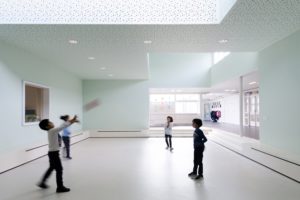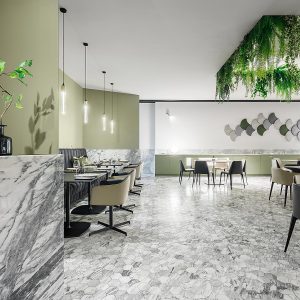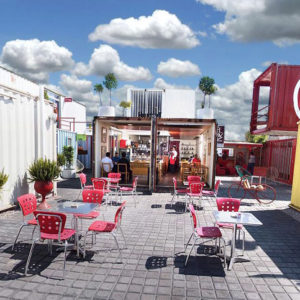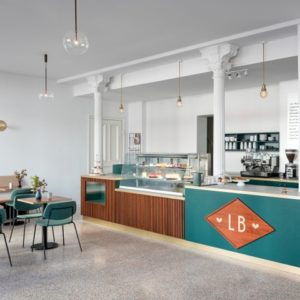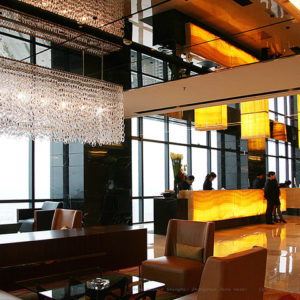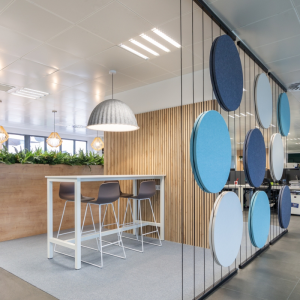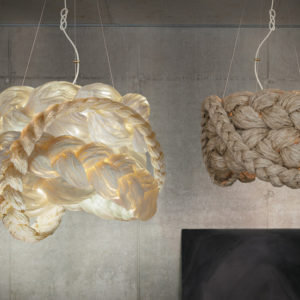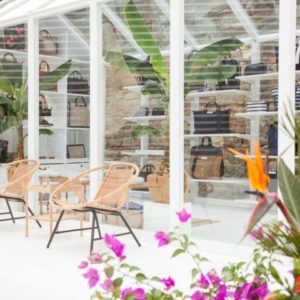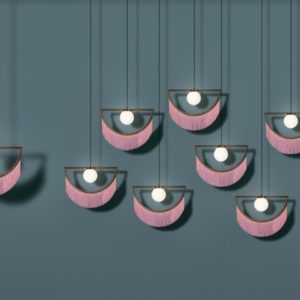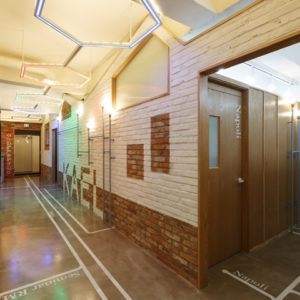


Indeed, the images I want to examine are the quite simple images of felicitous space. In this orientation, these investigations would deserve to be called topophilia.
Gaston Bachelard, The Poetics of Space
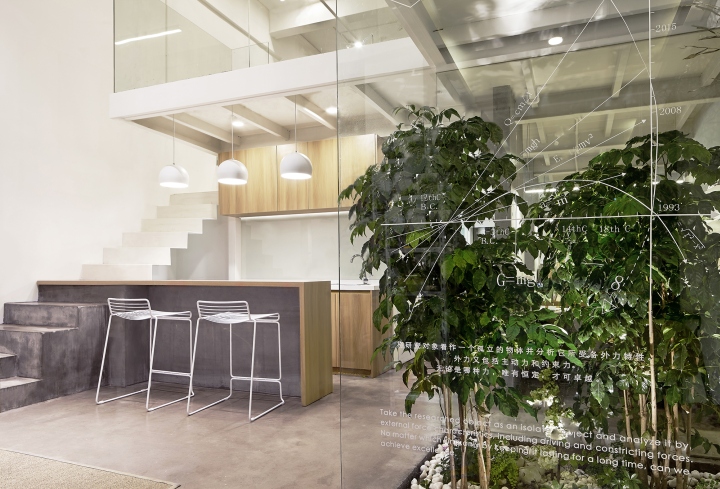
The politics of space, as advocated tirelessly by Lefebvre, is materialized as ubiquitous nets of power relations, rending all the office spaces a colosseum of power. Every image of space emerges from the matrix of social activities and relations it contains, namely the interaction among people, objects and the space itself. The politics of space, as advocated tirelessly by Lefebvre, is materialized as a ubiquitous net of power relations, rendering all kinds of spaces a colosseum of power.
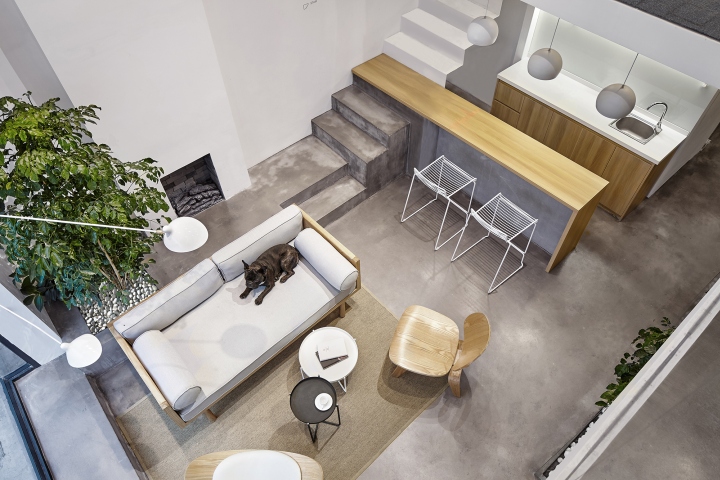
In this aspect, office spaces are especially prone to become ‘battlefields’ of power struggles, a character that, rather than enhancing working experience and efficiency, often results in depressing places overloaded with tension and stress. Compared with ‘fast’ office spaces, living spaces are much ‘slower’, characterized by the appeal to relaxation coziness and privacy.

Such topological distinction is what initiated our design. Why not ‘transplant’ the elements of the ‘slower’ residence spaces to ‘faster’ office spaces, and enliven the stiff and cold spatial relations of the later? On the basis of providing the essential office functions, our reconfiguration of spatial relation aims to create in office spaces the smoothness, tranquility and warm of houses. It requires us to break up and reassemble elements of two very different space categories and keep a compromising equilibrium between two very different design languages. Therefore it is also an innovative attempt to bring about new mode of spatial relationship.
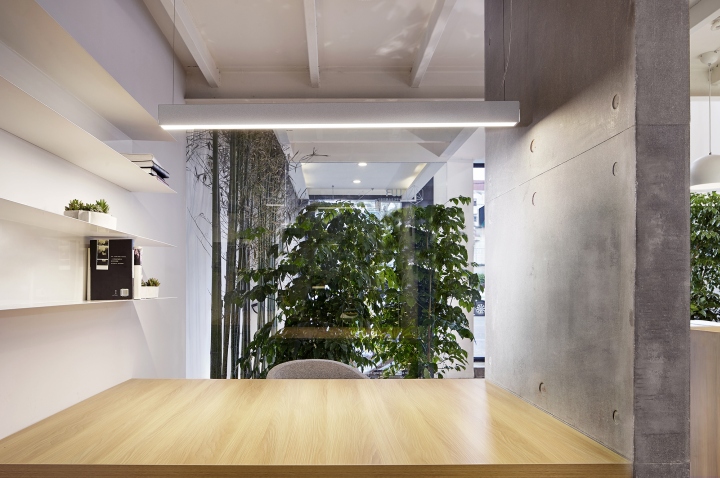
Embedded in a dense neighborhood of commercial buildings, this office, dotted with trees and bamboos, looks like an oasis in a desert. On the one hand, the ‘bamboo area’ on the side of the entrance, the cantilevered public rest area and the sofa, coffee table, bar and French windows, all of these give guests the feeling of being home; on the other hand, the independent office area on the ground floor is hidden behind the plants, which provides refreshing interior landscapes. The meeting room is in the innermost part, a place with a tint of a sweet home rather than a stressful and indifferent office.
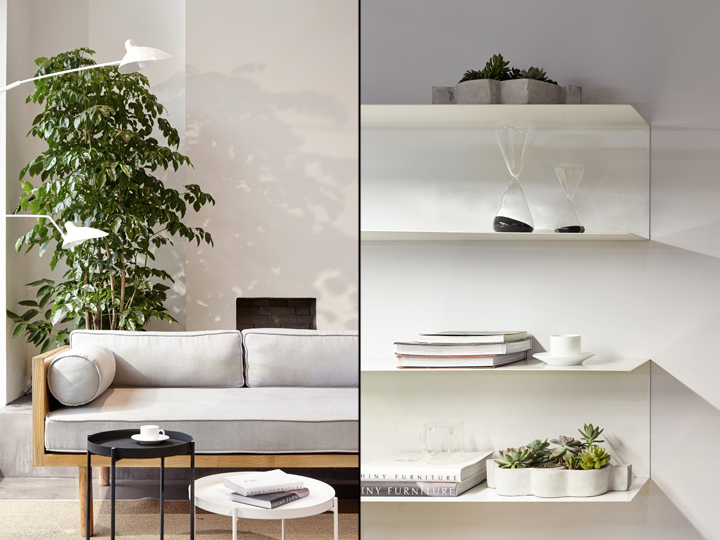
The combination of transparent glass panels and white wall not only enhances the illumination, but also creates various layers of space. The ‘bridge’ on the upper floor provides a focus of perspective, it also forms another ‘secret garden’ besides the bamboos on the ground floor.
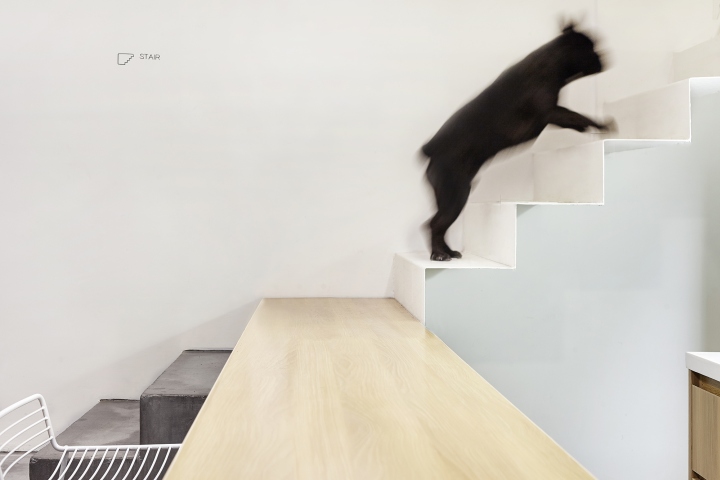
The upper floor is accessed through delicate, slim stairs, where an unique spatial dialogue of concrete, wood and metal. The playful combination of the bar and the stair is also symbolic of the combination of home and office.
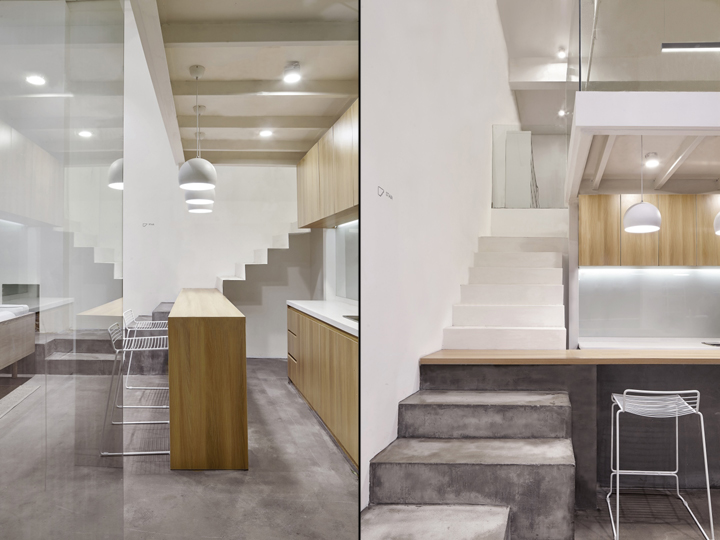
Our client hopes that the project can help improve cooperation and communication between colleagues. And the office will become a sweet home for all the team members. In the project, traditional offices spatial relations are broken up, reconfigured and reassembled, only to meet the new needs for new breeds of office spaces.
Design team: Zhang Lei, Sun Hao-Chen, Jiang Da-Wei, Zhang Yi-Ye
Design Company: Muxin Design
Photography by Zhang Da-Qi
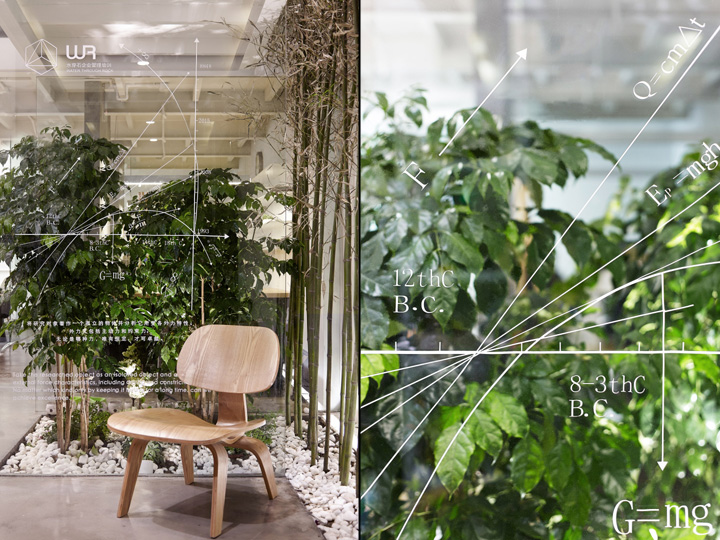

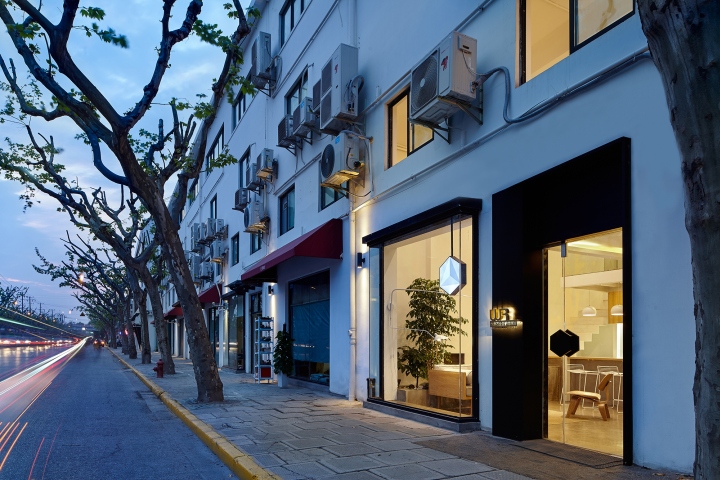










Add to collection

